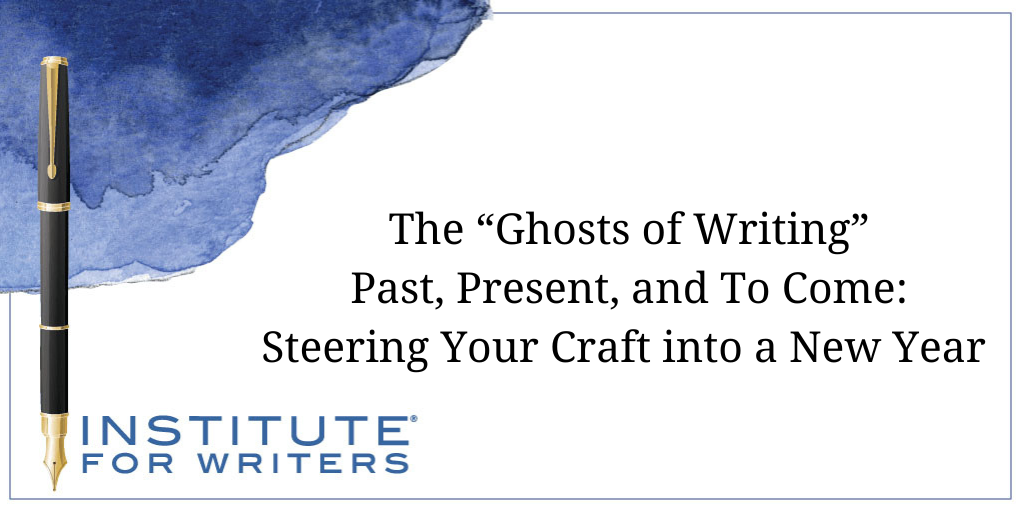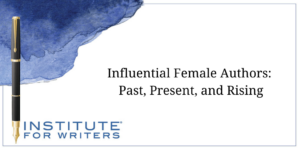
Why Submitting to Contests is a Win-Win
Should you enter a writing contest or not? If your writing rises to the top, you just might win a prize upwards of thousands of dollars if you’re lucky.

One of the most enduring and endearing stories associated with this time of year is Charles Dickens’ A Christmas Carol. Those who haven’t read the 1843 novella might know the story from watching one or more of the many film and theatrical versions, including a Broadway musical. In this story of transformation, a selfish, cynical, and miserly London businessman named Ebenezer Scrooge is awakened on Christmas Eve by three ghosts who take him on intense journeys into his past, present, and “what is to come.” As he examines his life and foresees a bleak future, Scrooge chooses a new path forward—one that leads to happiness and fulfillment.
We can draw useful lessons from Scrooge’s experience as we steer our writing into the new year. Imagining a personal Scrooge-like journey can help us make choices for a brighter writing future.
Traveling with the “Ghost of Christmases Past,” Ebenezer Scrooge revisits times when he felt good about his life and enjoyed loving relationships. As his past unfolds before him, he sees how his attitudes, values, and behavior changed for the worse. We writers can ask ourselves when have we felt good (or not so good) about these aspects of our work:
A writer friend of mine realized that although she longed to be a fiction author, she tended to read much more nonfiction and experienced more success writing nonfiction, and, more specifically, biography and history. She decided to focus on those topics, choosing only projects she felt passionate about. As for fiction, she now thinks historical fiction looks like a good fit, and it offers a way to recycle her nonfiction research. To improve her skills, she is taking a course on fiction writing and devoting one writing day each week to that type of work.

Delving into our pasts for this type of “self-survey” can help us identify the attitudes, habits, and choices that served us well versus those that have held us back. Maybe you accomplished your best writing when you wrote at certain times or in certain places, such as in a library, in a quiet room at home, or with a writing group. Maybe you learned new skills and gained a renewed sense of purpose by taking a writing course, attending a conference, or studying books and magazines on the craft of writing? Have you sold more manuscripts when you regularly set aside time to analyze the markets?
Bottom line: Are you where you want to be?
Scrooge’s third ghostly visitor takes him into the future, to what “may yet be” if he continues on the same course. As he contemplates a lonely old age and realizes nobody will miss him when he’s gone, Scrooge wonders if he is “past all hope.” As writers, we might have lost hope at one time or another, perhaps when we were struggling to finish a difficult project, while facing the challenges in the marketplace, or when we doubted our abilities as writers.
Scrooge reaches a turning point, just as we reach turning points in our writing lives.
And like Scrooge, we can choose an attitude of hope, coupled with positive action. He declares, “The Spirits of all Three [Past, Present, Future] shall strive within me. I will not shut out the lessons that they teach.” By taking an honest look at our past and current writing life and picturing what lies ahead, we can move forward with hope and determination.
 A Fresh Start
A Fresh StartThe morning after his enlightening journeys, Ebenezer Scrooge awakens eager to create a better future: “Running to the window, he opened it, and put out his head. No fog, no mist; clear, bright, jovial, stirring…Golden sunlight; Heavenly sky; sweet fresh air; merry bells. Oh, glorious! Glorious!” Scrooge does not spend this new day regretting past mistakes. Instead, he takes action. He buys a large turkey to be sent to the home of his underpaid, overworked employee, Bob Cratchit, and his family; later, he gives the man a raise. He heads outside to join the festive crowds on the streets, smiling and greeting passersby, and offers a generous donation to a charitable fund he once ridiculed. Although he had spurned an invitation to spend the holiday at the humble home of his nephew Fred, from whom he has been estranged, Scrooge changes his mind and experiences “wonderful happiness” there. Dickens assures us that Scrooge truly has changed. The rewards of his new way of life keep him on his positive path, and he becomes “as good a man as the good old city knew.”
We, too, can change our writing lives in ways that add meaning, joy, and the satisfaction that comes from self-discipline and work well done. Each new day means another chance.
How about tomorrow?

Should you enter a writing contest or not? If your writing rises to the top, you just might win a prize upwards of thousands of dollars if you’re lucky.

To many, writing is revision, and most writers revise their manuscripts numerous times before they’ve shaped it into the best version that it can be.

We’re going to look at influential female authors of the past, those impacting the present, and whom the industry expects to make a big splash.
1000 N. West Street #1200, Wilmington, DE 19801
© 2024 Direct Learning Systems, Inc. All rights reserved.

1000 N. West Street #1200, Wilmington, DE 19801
© 2025 Direct Learning Systems, Inc. All rights reserved.

1000 N. West Street #1200, Wilmington, DE 19801
©2025 Direct Learning Systems, Inc. All rights reserved. Privacy Policy.